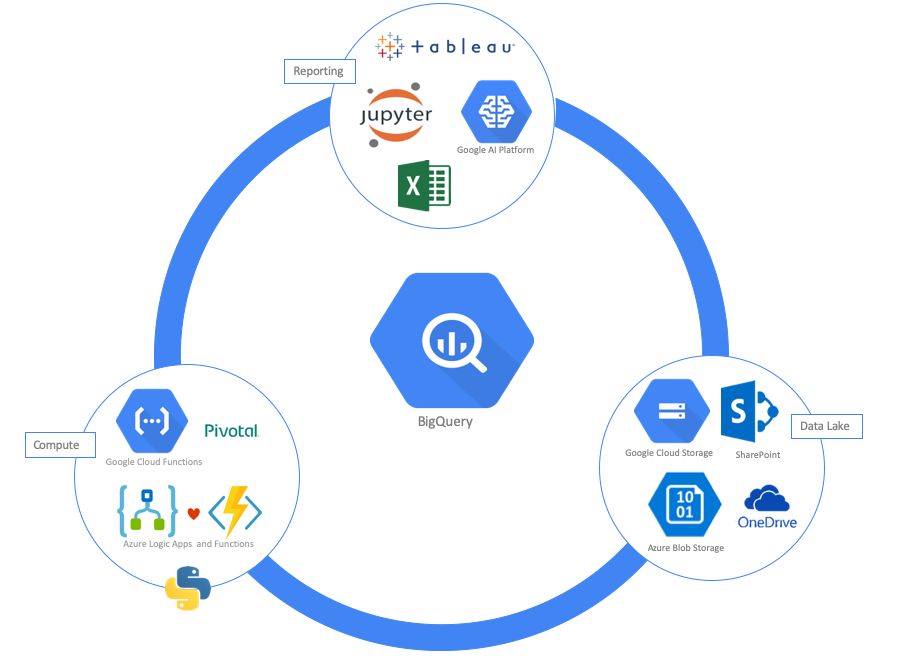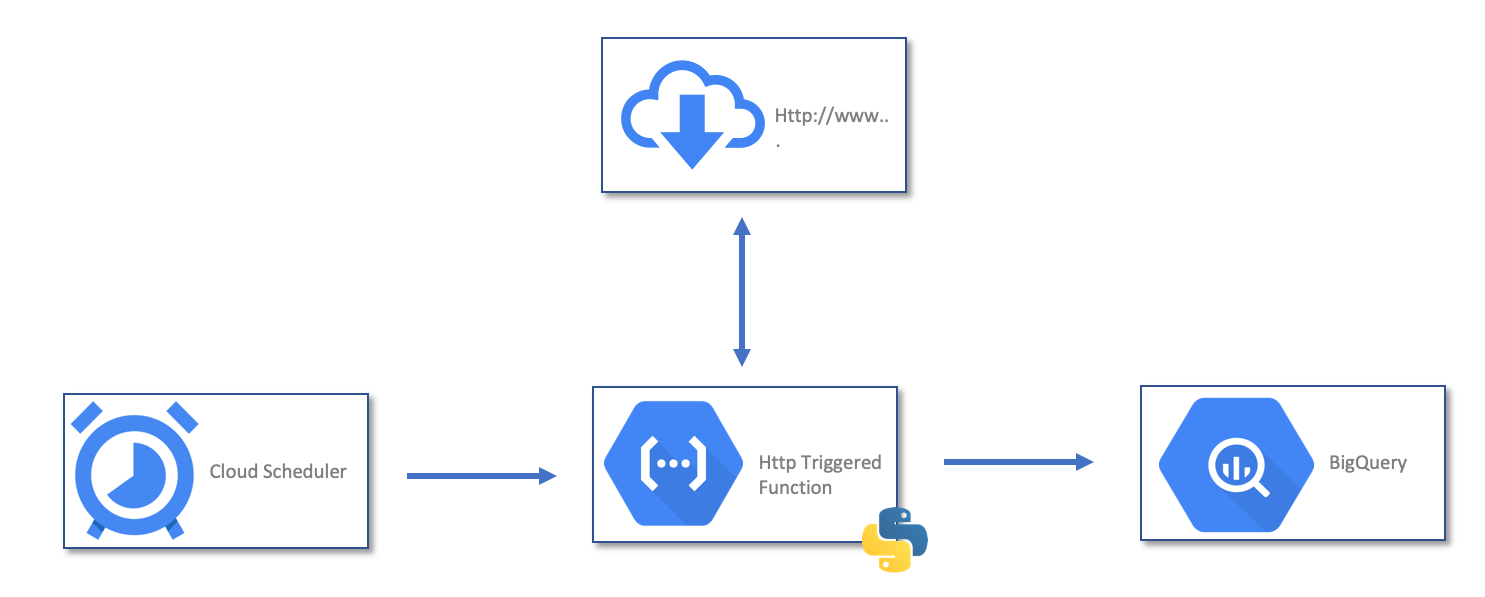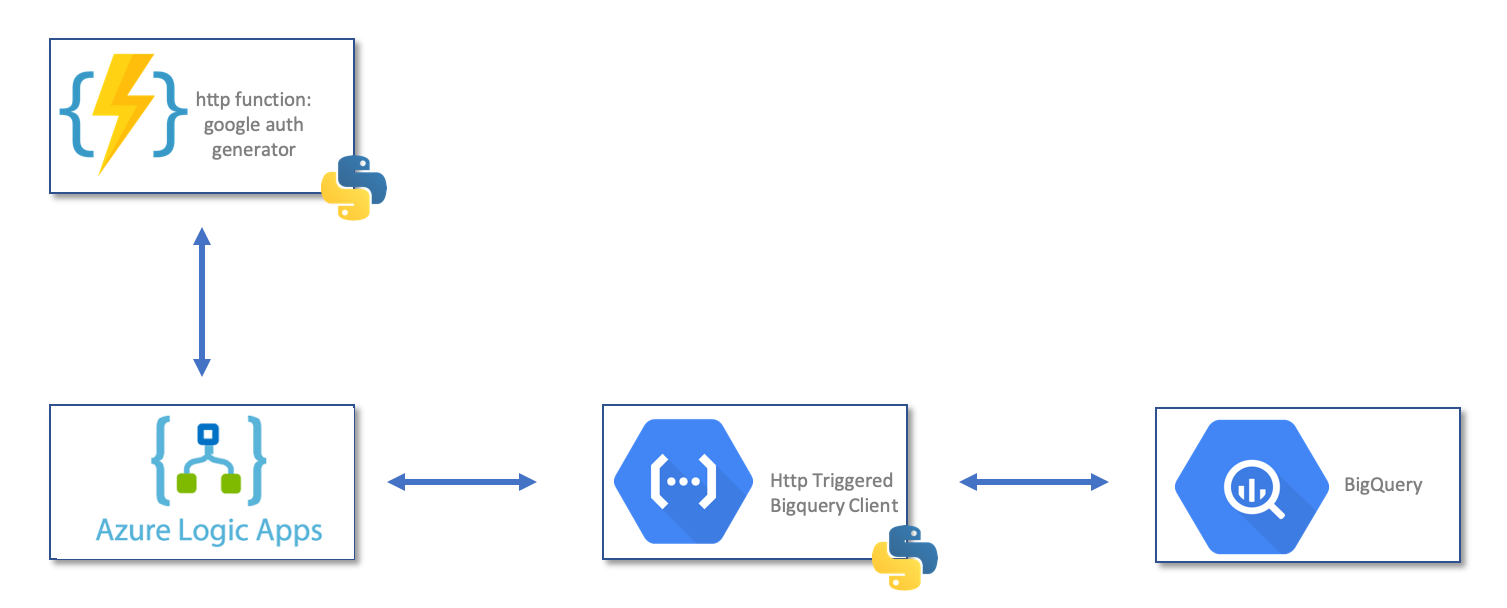Pyplatform is a data analytics platform built around Google BigQuery. This package provides wrapper functions for interacting with cloud services and creating data pipelines using Google Cloud, Microsoft Azure, O365, and Tableau Server as source and destination.
- enables fast and scalable SQL datawarehousing service
- abstracts away the infrastuture by builiding data pipelines with serverless compute solutions in python runtime environments
- simplifies development environment by using jupyter lab as the main tool
pip install pyplatformgit clone https://github.com/mhadi813/pyplatform
cd pyplatform
conda env create -f pyplatform_dev.yml
Credential file path can be set a environment varible in conda env activation script or bash profiles. Please reference conda documentation for enviroment variables and environment activation script
import os
# if env activation script not created: update path to credential files
# see ``secrets`` folder for credential tamplates
# see functions ``docstring`` for authentication methods when calling a function
os.environ['GOOGLE_APPLICATION_CREDENTIALS'] = './secrets/dummy_gcp_service_account_credentials.json'
os.environ["AZURE_CREDENTIALS"]= './secrets/dummy_ms_azure_credentials.json'
os.environ['TABLEAU_SERVER_CREDENTIALS']='./secrets/dummy_tableau_server_credentials.json'
os.environ['PIVOTAL_CREDENTIALS']='./secrets/dummy_pivotal_credentials.json'
os.environ['DATASET'] = 'default_bigquery_dataset_name'
os.environ['STORAGE_BUCKET'] = 'default_storage_bucket_id'from pyplatform.common import *
show_me()
import pyplatform as pyp
show_me(pyp)




